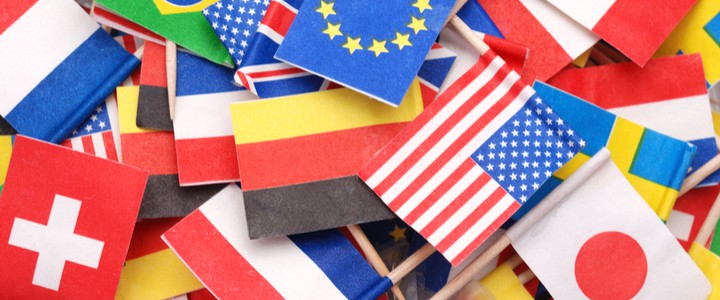
It seems that most days there’s something happening in the news that catches our attention. From North Korean missile tests, to extreme weather patterns in the southern states of America and the Caribbean, to the ongoing uncertainty over Brexit, the list is endless. What effect do such events have on investments? We have looked at different scenarios and how they can have an impact on an investment strategy.
Foreign policy and foreign exchange
The foreign exchange market is the largest active financial market in the world. In today’s globalised economy a political event like an election or a shift in foreign policy can have a significant impact on exchange rates around the world. For example, immediately after the EU referendum vote result last year, the pound plunged against the Euro as fears amounted over the UK’s ability to prosper as an independent nation. Whilst some economists predict that the pound will eventually return to pre-referendum levels, others think that we are trending towards parity; which would mean 1 pound to 1 Euro. In the current situation, a weaker pound can actually be beneficial for some UK businesses, like exporters and manufacturers, as their goods are more attractive overseas to foreign buyers who have more buying power with their stronger currency. Conversely, this obviously means that it’s now more expensive for UK firms to import Euro denominated goods.
Usually, the level of confidence in a country’s governing system has a direct effect on financial markets, as well as how traders view an isolated event of instability or potential change, like an election or a referendum on a key issue. An incoming government’s new ideas might have implications for businesses in terms of their tax treatment and rules and regulations relating to the industries they operate in. These, in turn, could have an impact on company share prices. That said, there are many other factors and variables to consider including the relationships between businesses, suppliers and customers – both inside and outside of the country.
President Trump and North Korea
The current hostilities between the USA and North Korea amount to a crisis the world has not witnessed for quite some time. When President Trump issued a warning to the North Korean leader, Kim Jong-un, this had an instant effect on the financial markets. The price of gold rose to its highest level for the past two months. This is significant as it is often viewed as a defensive investment or a ‘safe haven’ when markets are volatile. In the currency markets, the Swiss franc also strengthened against the US dollar as this currency is seen as a safer option due to Switzerland’s political neutrality and its robust banking system.
The price of war
When North Korea responded to President Trump threatening a nuclear strike, the main Asian and European indices dropped. This included the Nikkei index in Japan, a country directly affected by North Koreas displays of aggression. Due to the globalised nature of economics and politics, such international disputes and events have a domino effect across financial markets.
The cost of bad weather
The 2017 hurricane season is currently wreaking havoc across the Caribbean and Southern states of North America. Lives have been lost, and homes and businesses destroyed. Damage to factories, distribution centres and transport links has a direct effect on the supply chain and infrastructure of a country’s economy. The damage caused in Houston, and now the Caribbean Islands, is already amounting to billions. Houston is responsible for one-fifth of oil production for the US, as well as half of the country’s oil refining capacity. Experts estimate that Hurricane Harvey is set to be one of the costliest natural disasters in US history, with the final bill expected to be as much as $40-50bn (£30-£38bn).
Diversify, always spread your level of risk
As we’ve explained, politics and natural disasters can have a dramatic effect on financial markets. Therefore, a sound investment strategy is essential in order to weather any market conditions. No strategy is guaranteed but the most sensible approach is to spread your level of risk by diversifying your investments across asset classes. A portfolio containing a wide variety of investments is more likely to be less volatile and create steadier returns. With stock market valuations also at historically high levels, it’s also worth considering drip-feeding investments in steadily over a period of time. This increases the likelihood of a smoother entry into your investments.
If you would like to review your investment strategy or just want to ensure that your money is working for you in the best and safest way, please get in touch with us to speak to one of our financial planners.

